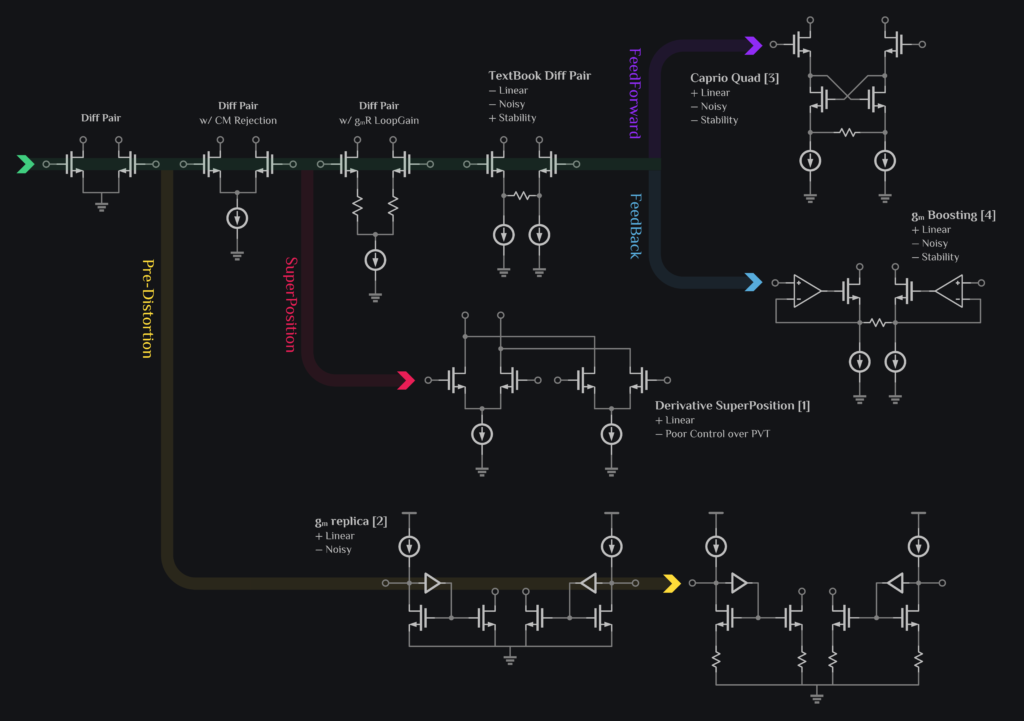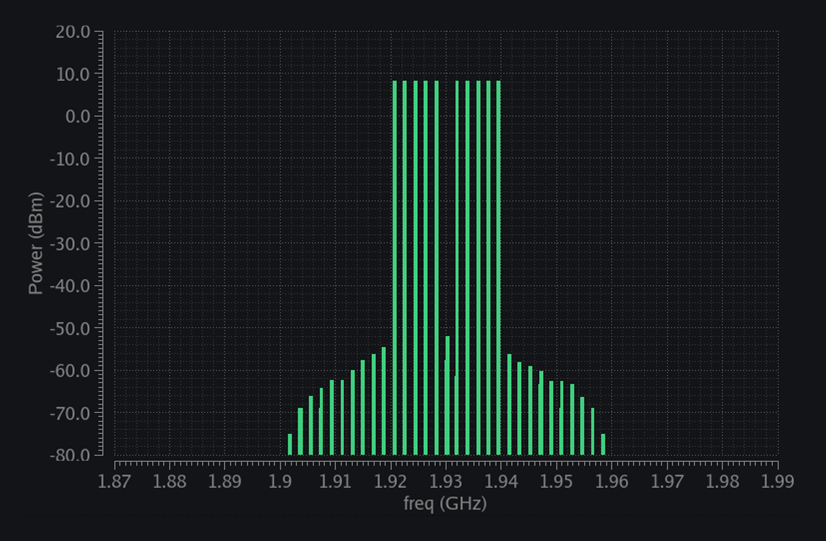Linearity Improvement Techniques

Linearity Improvement Techniques for on-chip Amplifiers The Fantastic Four of Linearity Improvement Techniques Linearity is one of the most, if not THE most, important metric in circuit design. All analog circuits are inherently non-linear mainly because of non-linear behavior of transistors. Many linearity improvement techniques have been discovered or invented in literature yet we only […]
Protected: ACLR Simulation in Cadence

There is no excerpt because this is a protected post.
Loadline Design
Loadline Design The output of a power amplifier (PA) is terminated with a specific impedance. This impedance is required for optimal linearity or power generation or efficiency or combination of such specs, and is determined by loadpull analysis. We call it loadline. While a loadline helps PA deliver its performance, the matching (VSWR) gets ruined […]
Impedance Matching and Quality Factor
A Journey from Resonance to Impedance Matching Chp. 7: Quality Factor and Impedance Matching One Must Not Tell Lies. We have reached the finale of this saga. We have discussed how quality factor of a resonator led to signal gain and how did RF designers used that gain to boost impedance. Today we will look […]
Quality Factor and Bandwidth
A Journey from Resonance to Impedance Matching Chp. 6: Quality Factor and Bandwidth Q-factor is Inverse of 3dB BW. Design or Coincidence? You have seen this $$ Q = frac{1}{FBW}$$ where FBW is fractional bandwidth (dfrac{Delta omega}{omega_o}) and (Delta omega) represents 3dB bandwidth around your resonance frequency (omega_o). We tried looking this up on internet […]
Transient response of LC Tank
A Journey from Resonance to Impedance Matching Chp. 5: Quality Factor and LC Tank Behavior in Time Domain To develop further intuition in Q-factor and extend its application to matching and bandwidth, it is prudent to study time domain behavior of LC tank. We show how an LC tank starts up, how the voltage developed […]
Series to Parallel Conversion – Intuition
A Journey from Resonance to Impedance Matching Chp. 4: Series to Parallel Conversion using Quality Factor The Underrated Magic Trick A series impedance can be transformed to equivalent parallel impedance and vice versa. This is the most underrated trick yet it is fundamental to matching network design. Math behind series to parallel conversion is simple. […]
Quality Factor and Gain – Passives Can Amplify Too
A Journey from Resonance to Impedance Matching Chp. 3: Passive Amplification using Quality Factor The Story of Unsung Hero Passives have been such underdog. All they ever did was taking your signal away from you. A resistor dissipated it away in heat. An inductor and a capacitor exchanged it back and forth. You always resorted […]
Quality Factor Formula – Inductor vs Resonator
A Journey from Resonance to Impedance Matching Chp. 2: Inductor vs Resonator Quality Factor The Ultimate Truth Teller The idea of quality factor originated from resonators and was ported to inductors later on. It was observed that a nice pure LC tank could not sustain oscillations because inductor degraded the quality of resonance. So instead […]
Quality Factor – How it All Started
A Journey from Resonance to Impedance Matching Chp. 1: Origin of Q-Factor The Deadly Beginnings #1 When a Capacitor discharges through Resistor Let’s start from a capacitor C. Charge it to 1V. Now connect it to a resistor R. What will happen? Capacitor will lose charge exponentially. You would say, ok, my time constant (tau) […]